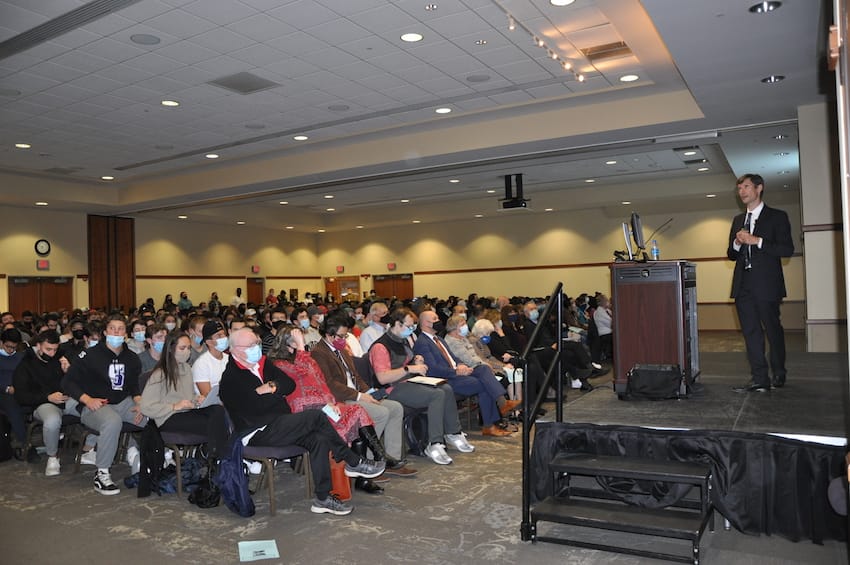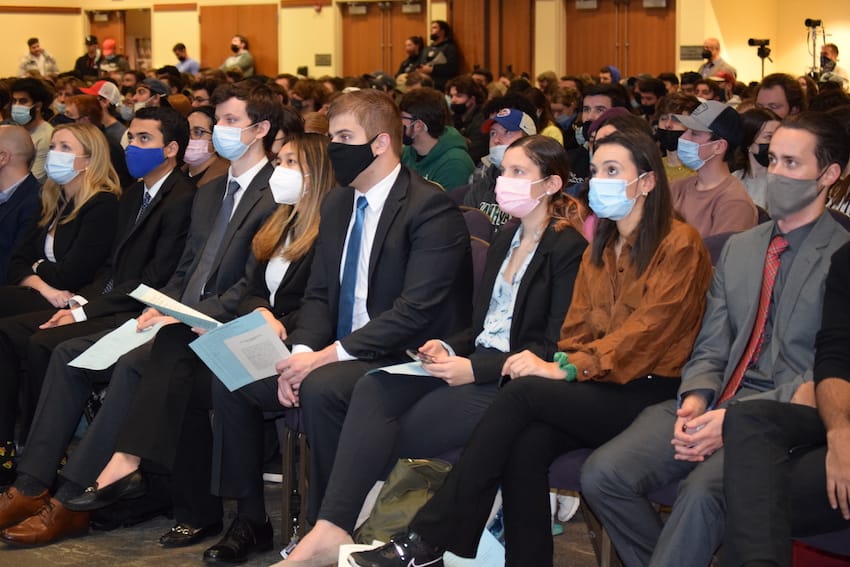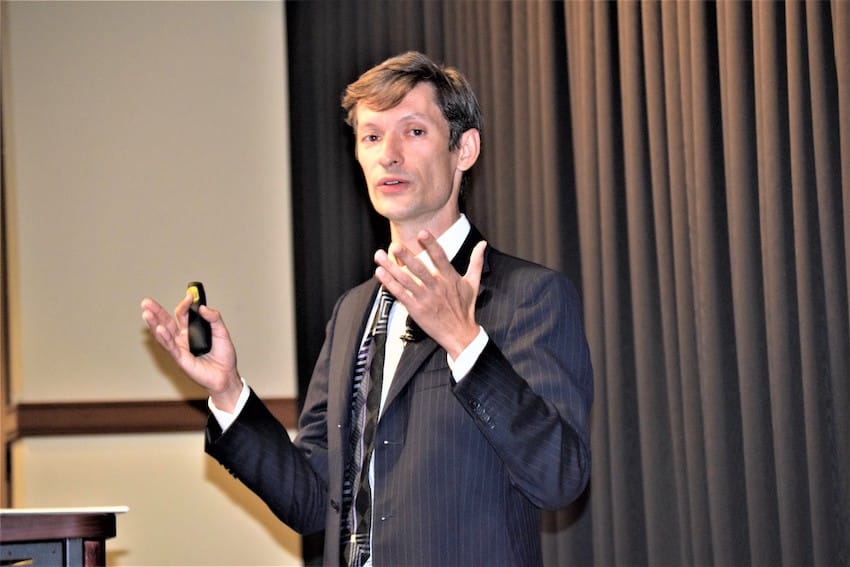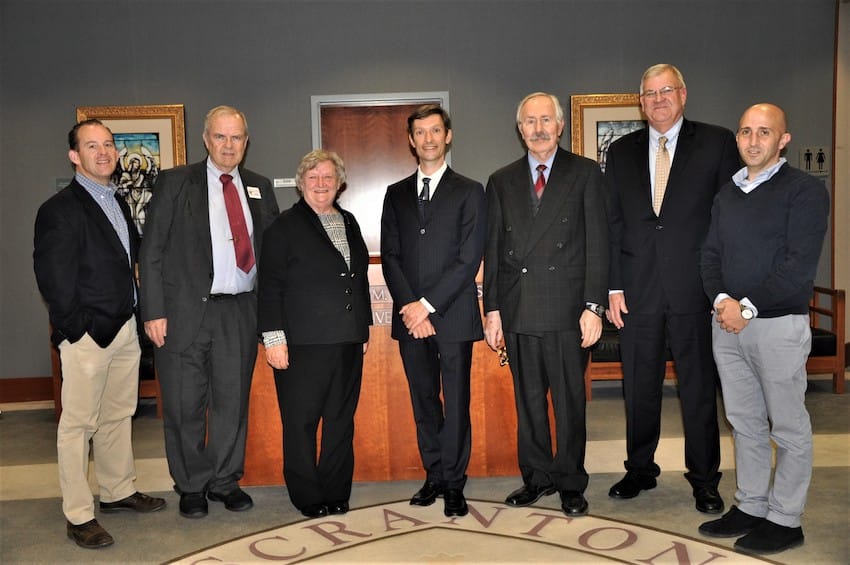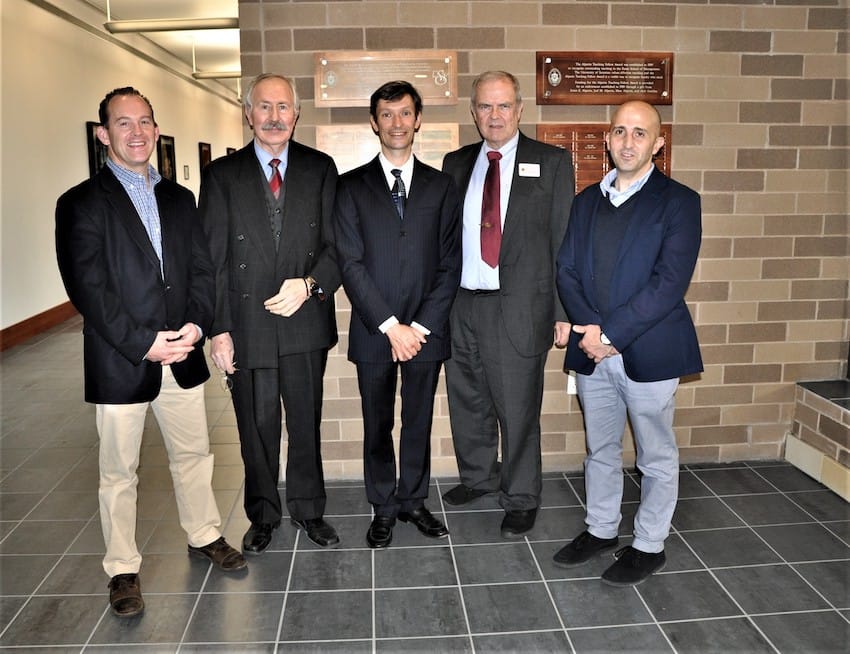Scranton Holds Annual Henry George Lecture
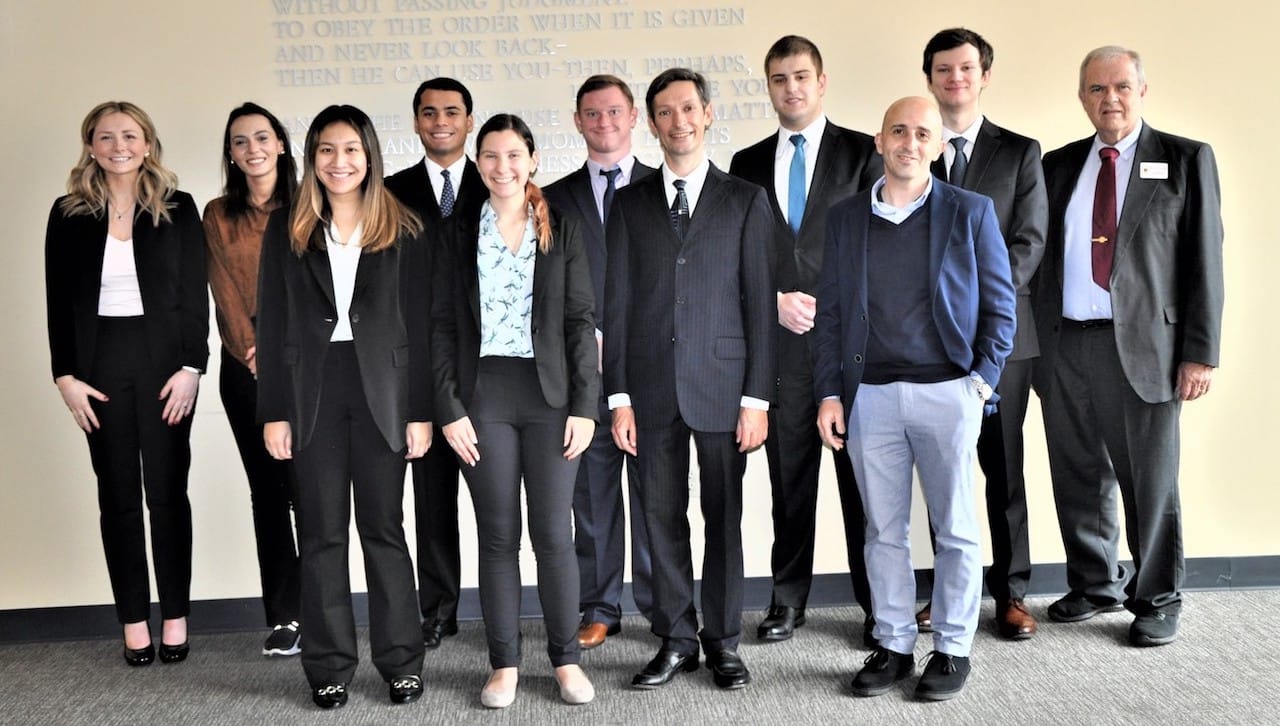
The keynote speaker at the 35th annual Henry George Lecture, Yuliy Sannikov Ph.D., filled nearly every seat in the McIlheney Ballroom on Nov. 17 with an audience of students, faculty and invited guests.
Following the lecture series’ tradition of inviting esteemed guest speakers, Dr. Sannikov is the Jack Steele Parker professor of economics at the Stanford Graduate School of Business. His awards include the 2015 Fisher Black Prize, the 2014 Kiel Excellence Award in Global Economic Affairs and the 2016 John Bates Clark Medal for his contributions to economic thought as an American economist under the age of 40.
For the Henry George Lecture, “The Value of Money: Currencies, Bonds, Bitcoin,” Dr. Sannikov addressed the growing role cryptocurrencies play in today’s economy.
Walking the audience through a basic valuation equation and a simplified version of the Samuelson OLG Model, Sannikov concluded that, despite cryptocurrencies’ increasing prevalence in our world, “fundamentally, at least in the long-run, the value of currency should have something to do with how the government balances its budget.”
Dr. Sannikov said this discussion becomes important for average people, regardless of whether they have money invested into cryptocurrencies, because the popularity of different currencies impacts the value of the U.S. dollar and ultimately the country’s inflation rate, driving prices of goods higher. Dr. Sannikov stated that “recently there has been an uptake in inflation and the most recent data from October gives the number of 6.2 percent.”
Whether or not this is directly related to the public’s growing interest in alternative currencies, like Bitcoin, Sannikov explained that “if an asset becomes inflated in value and it becomes a bubble, when that bubble crashes it coincides with inflation.” He was quick to clarify that it is unclear if the values of various cryptocurrencies are falsely inflated, but said it is something to keep an eye on as more and more people become interested in the concept.
Considered the preeminent public lecture series on economics in Northeastern Pennsylvania, the Henry George Lecture Series is presented by the University’s Economics and Finance Department and the campus chapter of Omicron Delta Epsilon, an international honor society for economics. Among the distinguished list of speakers who have spoken at previous lectures are 11 winners of the Nobel Prize in Economics: David Card (2021), Paul Romer (2018), Robert Shiller (2013), Tom Sargent (2011), Peter Diamond (2010), Paul Krugman (2008), Joseph Stiglitz (2001), George Akerlof (2001), Amartya Sen (1998), Robert Lucas (1995) and Robert Solow (1987). The lecture series is named in honor of the 19th-century American economist and social reformer and is supported financially by a grant from the Robert Schalkenbach Foundation.



